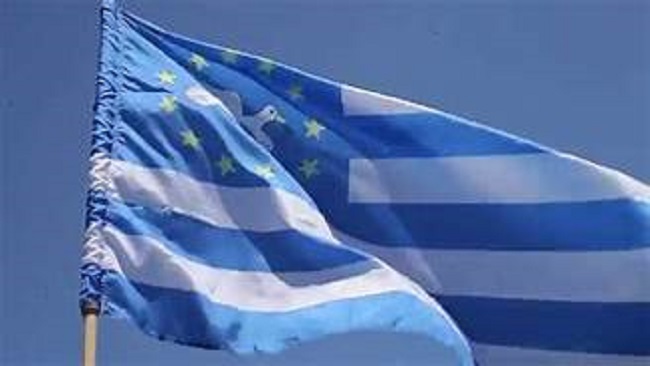Why the Southern Cameroons crisis is now being fought in Washington
On the evening of Oct. 4, two frightened-looking middle aged men in T-shirts were forced by armed men to sit on the ground in the middle of a village square in Guzang, in North West region of Cameroon, one of two main English-speaking regions in the predominantly Francophone Central African country.
The two men were alleged to have been spies for the national Francophone-led government. In a video seen by Semafor Africa, and shared widely on Cameroon social media in recent weeks, the men were lined up and executed by a firing squad in front of a small crowd of villagers. The execution has been claimed by the armed wing of the Ambazonia Governing Council (AGovC), a separatist group.
That moment of almost casual, coldblooded violence earlier this month is a dark reminder of one of Africa’s low profile but seemingly intractable armed conflicts taking place in Cameroon’s English-speaking North West and South West regions, which the separatists refer to as an independent state called Ambazonia.
The battle has also moved to Washington DC’s K Street, infamous for its expensive lobbying firms. Houston-based separatist leader Chris Anu confirmed to Semafor Africa that, on behalf of the “Federal Republic of Ambazonia,” he had contracted the lobby firm Scribe Strategies, led by veteran Washington player Joseph Szlavik, in a bid to make their case to key Africa watchers on Capitol Hill and at the United Nations.
“La Republique du Cameroun [government of Cameroon] is in the habit of saying that it doesn’t know who to talk to in Ambazonia,” Anu said. “By hiring a lobbyist, we are saying to LRC that they now know who to talk to and how to reach us.” He said the separatists will be speaking with “one voice” in conducting future negotiations or referendum matters via the firm.
Know More
Cameroon’s armed separatist conflict has claimed the lives of over 6,000 people, displaced 630,000 internally and a further 88,000 as refugees to next-door Nigeria. Its roots lie in Europe’s imperial past. In 1884, Germany annexed swathes of independent kingdoms in Central Africa to form a colony it named Kamerun but lost it after World War I to Britain and France which partitioned the territory.
In the 1960s, some in the British territory wanted independence by forming their own state, and not by joining neighbouring Nigeria or the already independent French Cameroun. However, they were not given that third option under a U.N.-organized referendum. This has bred frustration and secessionist agitations ever since. In 2016, protests against the imposition of French language officials in English-speaking schools and courts sparked protests and strike action by lawyers and teachers. But things turned violent the following year.

Amindeh’s view
For the past seven years, the lingering Anglophone crisis has attracted little global attention aside from the odd headline, presumably because it doesn’t significantly threaten the interest of major foreign powers.
Much of the battle is being fought on the ground and also on social media platforms with separatist activists and pro-government operators taking turns to spread propaganda.
It’s important to note both sides in the crisis have been spending in the U.S. to fund a lobby war. Since the conflict erupted, separatists told us they have contracted at least two lobby firms, Foley Hoagg and now Scribe Strategies & Advisors. The government for its part has used several lobby and PR firms on a variety of matters. They include Glover Park Group, Clout Public Affairs, Mercury Public Affair and Squire Patton Boggs.
It seems the conflict has descended into a stalemate with both sides hoping that the other will get exhausted and give up. As Arrey Elvis Ntui, a senior analyst for Cameroon at Brussels-based International Crisis Group, put it, the conflict has outlived narrow efforts made by the government and Anglophone separatist groups in the last seven years. “What could change the scenario is the parties doing what they have so far failed to do: discuss an end to hostilities and a political solution,” Ntui posited.
Room for Disagreement
Cameroon’s government insists that the socio-political upheaval in its North West and South West regions is an internal affair which it has under control. When the Canadian government announced early this year that Cameroon’s leaders had agreed to enter a peace process facilitated by Canada, Yaoundé was quick to issue a rebuttal. “It is first and foremost up to the Cameroonian people, to the institutions and leaders that have been freely chosen, to seek appropriate ways and means to address problems facing our country [Cameroon],” it said in a statement.
The View From Buea, South West Cameroon
Dr. Suh I Fru Norbert, a political scientist and conflict resolution expert at the University of Buea in the South West region, said nothing substantial had changed since the shock of the executions. “In a situation of asymmetric warfare, it is common for fighters to make sporadic appearances of the sort to remind the enemy they can still do something…However, what appears as a puzzle is to see such a mobilization at a market square in the day without the presence of conventional security forces,” Norbert told Semafor Africa.





